Description
ABSTRACT
Expanding the Frontiers of Nigerian Copyright Laws in the Age of Social Media
Nkem Itanyi* and Chinelo Ngwu**
The social media is an avenue which promotes intellectual creativity and a minefield of ideas which can be deployed into important works. The Copyright Act (Cap C28, LFN 2004), lists the works which are eligible for copyright protection. Works in digital format may or may not fit into these protected categories. Multimedia works obscure the clear-cut distinction of categories of works as they combine works of different kinds. They are also not static as they evolve with technology. It has been recommended that the different categories of works be protected according to their distinct features. We opine that this is untidy and does not make for uniformity. Also, the concept of fixation (on a stable material or medium) seems difficult to sustain as a pre-requisite for the qualification of a creation as a copyright work since intangibility and a transitory nature are common features of works placed on the internet. Sequel to the above, it is imperative to fix certain duties on online service providers just like other countries have done; duty to give notice of illegal activities and duty of identification of infringers upon request of the investigative authorities. Infringers should also be made to account for profits while the infringing contents were up. Finally, due to the potential for commercial exploitation of user-generated contents on social media sites, they should use effective content identification technology to eliminate from their services all infringing user generated contents.
Keywords: Copyright, Multimedia, Fixation, User-Generated Content, Social Media, Internet, Online Service Providers.
INTRODUCTION
The social media1 is an avenue which propagates intellectual creativity and a minefield of ideas which can be developed into important works. It is about freely sharing knowledge and information. It is a collection of online communication channels which allows people to create, share, exchange information, ideas in virtual communities. The social media is a powerful tool in today’s world, arguably, more important than the traditional media. Perhaps, a statement which highlights this is accredited to Malcolm X, who opines that the media is the most powerful entity on Earth; they have the power to make the innocent guilty and to make the guilty innocent, because they control the minds of masses. Nevertheless, it is also a cheap avenue for copyright infringement. Cheap in the sense that infringement is very easy, less tasking, instantaneous, and simultaneous and it defies easy control and regulation. Information in digital form is intangible and can be copied with no loss of quality.
Since the beginning of the 20th Century, there has been continuous exponential advancement in science and technology. The world wakes up to innovations daily.
* LL.M (Lond.), BL. Lecturer, Department of Commercial and Corporate Law, Faculty of Law, University of Nigeria.
** LL.B, BL. Associate, Olaniwun Ajayi LP.
- This includes websites and applications that enable users to create and share content or participate in social networking. Social media has been defined by The Merriam Webster Dictionary as including all forms of electronic communication (such as websites for social networking and micro blogging) through which users create online communities to share information, ideas, personal messages, and other content (such as videos). <https://www.merriam-webster.com/dictionary/social%20media> accessed 4 February 2018.

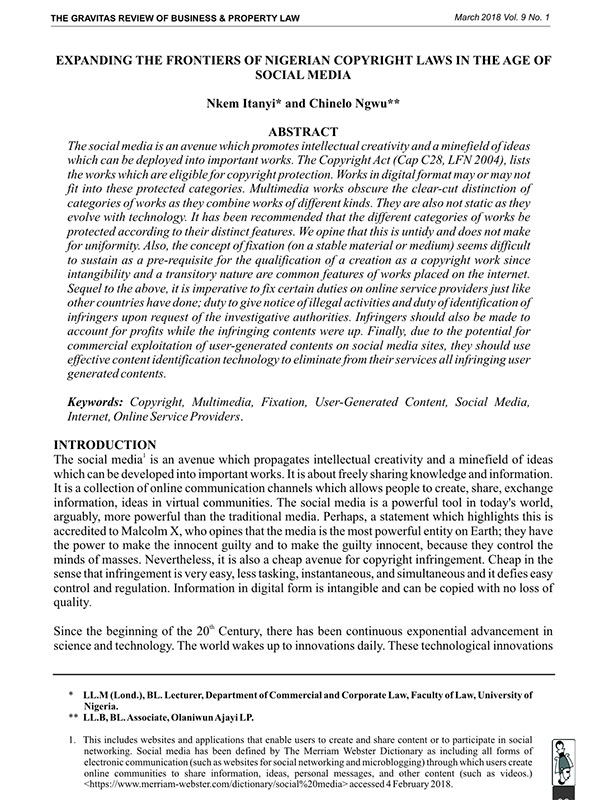
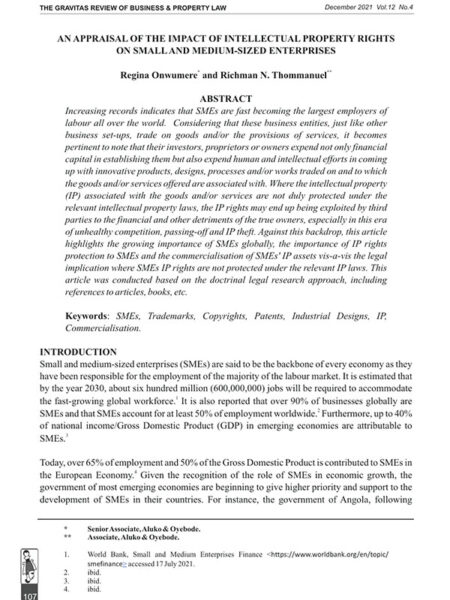
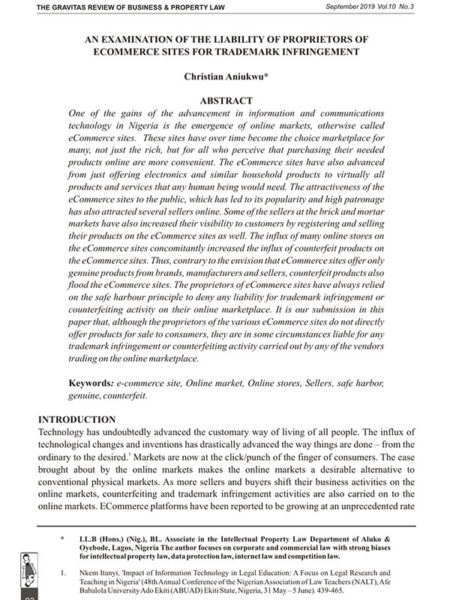
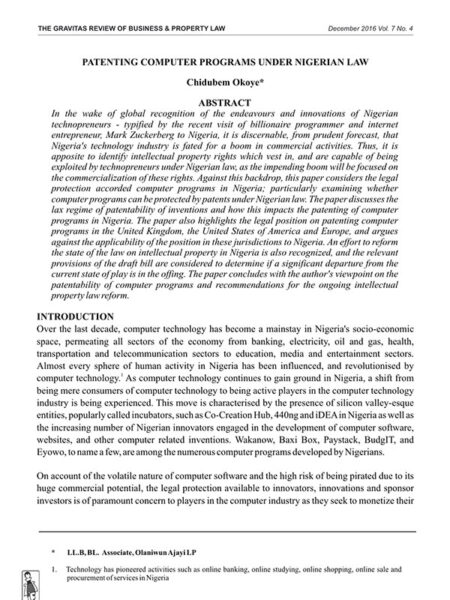
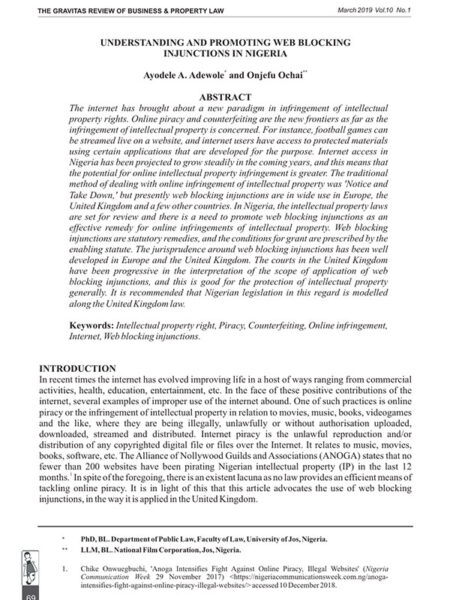


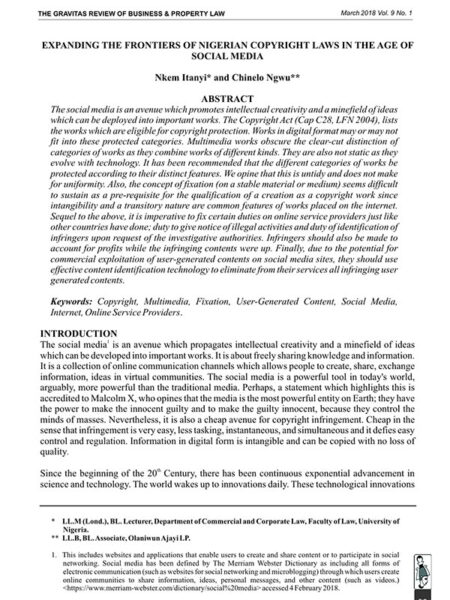
Reviews
There are no reviews yet.